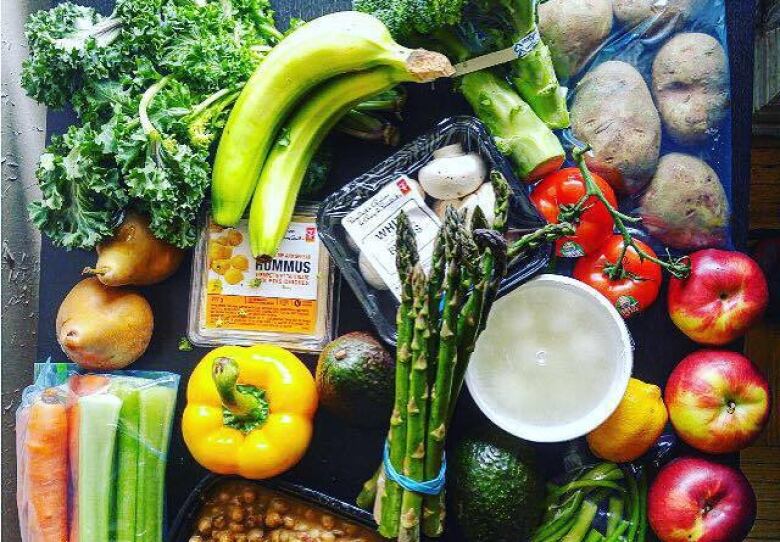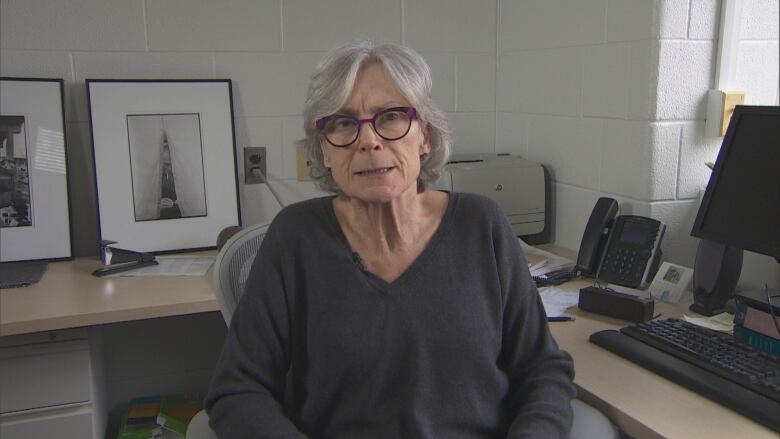Why is food insecurity such a big issue in N.L.?
1 in 8 Canadian households are affected by food insecurity, according to U of T

Imagine a table of food sitting in front of you. You can look at it, you can almost taste it but you can't have any of it.
Why? Because you can't afford it.
This is food insecurity in a nutshell the inability to access food because of financial constraints.
Food insecurity is a growing issue in Newfoundland and Labrador. What was once a poster child province for how to manage food insecurity has fallen from grace fast.
Things have got substantially worse, for sure over the last few years.- Valerie Tarasuk
According to Proof, a research teamdedicated to investigating food insecurity at the University of Toronto, one in eightCanadian households is affected by food insecurity. It can takeon different forms,affect families in different ways, andcan be broken down into three categories:
Marginal food insecurity means hoping the food you have will last. Those experiencing it often worry food will run out before they can afford to buymore.
Moderate food insecurity comes with a compromise. People buylower quality food because it'scheaper in an effort to save money.
Severe food insecurity is seen in extreme cases. Those who face severe food insecurity often miss meals, or reducetheir food intake due to a lack of food or the desire to have enough food to provide for others. Drastic cases can see people going days without food.
Valerie Tarasuk, a professor in the department of nutritional sciences at the University of Toronto, says increases to the amount of food insecurity in Newfoundland and Labrador are alarming.
"Things have got substantially worse, for sure over the last few years," shesaid.

Common misconceptions
Food insecurity affectsmany Canadians, but misconceptions persist.
Tarasuk said food banks have a role to play in providing short-term relief to hunger butthey don'taddress the root cause of food insecurity: poverty.
"The problem is that this issue of food insecurity is so much bigger than they are," shesaid.
"The difference is four- or fivefold. So, you know, every person who's going to a food bank,there could be four others in the community that are also struggling."
Newfoundland and Labrador food banks recorded roughly 28,000 visits in March 2018. That's one visit for every 19 people in the province.
Food insecurity isn't a food problem, it's an income problem.
Another common misconceptionis that food insecurity only affects people receiving social assistance. Tarasuk says this isn't the case food insecurity can affect people from all walks of life.
"The rise we've seen in Newfoundland and Labrador in terms of food insecurity rates not only suggests that there is increasing vulnerability amongst people on income assistance but also that more people in the workforce are struggling to manage," she said.
Tarasuk says food insecurity isn't a food problem butan income problem. Food is available, but far too many Newfoundlanders and Labradorianscan't afford to buy it.
Solving food insecurity isn't going to happen overnight, Tarasuk said it needs long-term change and important conversations.
CBC NL has collaborated with Food First NL, a not-for-profit organization that works to improve access to food, for this year-long series that explores the problems people struggle with to access food.
Corrections
- A previous version of this story said Newfoundland and Labrador food banks recorded roughly 28,000 visits in 2018. In fact, they recorded that number of visits in March 2018 alone.Feb 20, 2020 8:20 AM NT
With files from Amy Joy and Adam Walsh












_(720p).jpg)


 OFFICIAL HD MUSIC VIDEO.jpg)
.jpg)



























































































